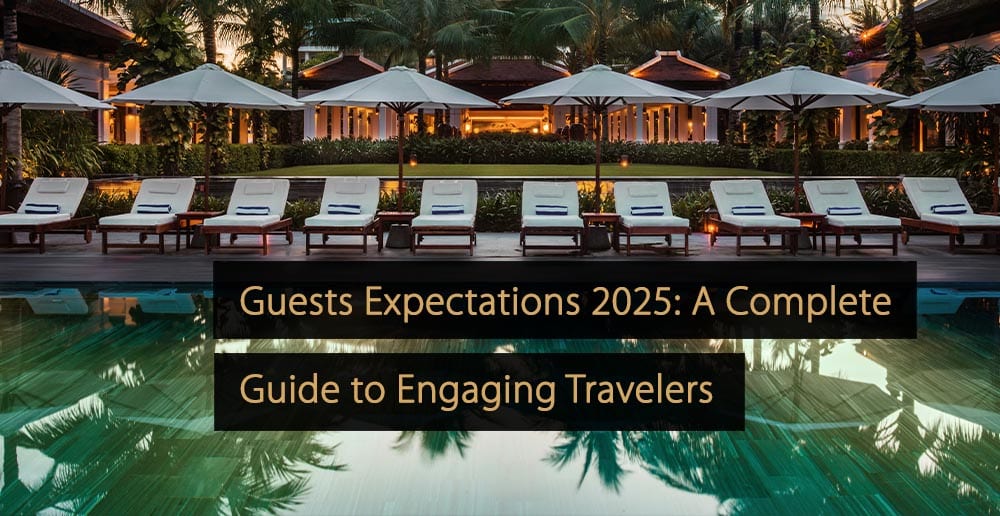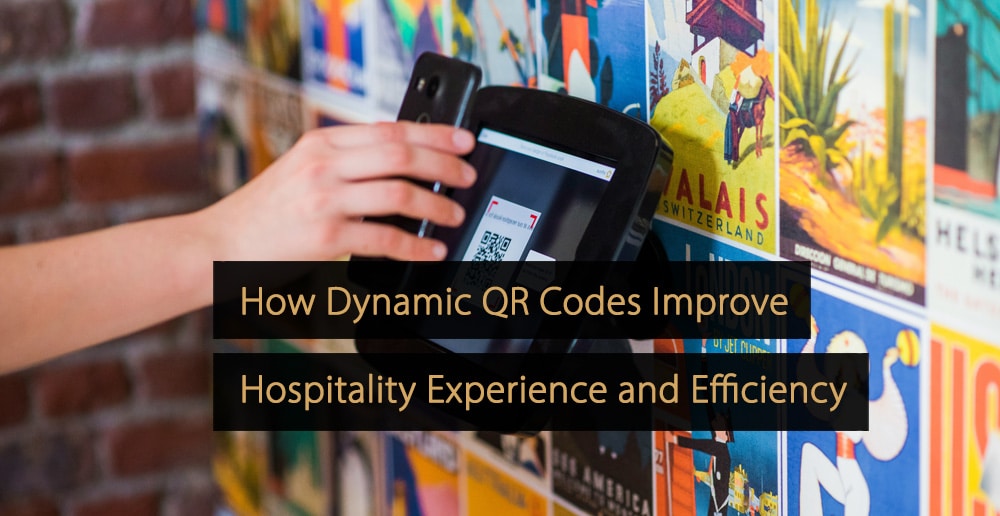Question for Our Hotel Marketing Expert Panel
Does contactless check-in improve the guest experience or not? What are the potential pitfalls? Would you consider it essential for hotels / accommodation providers?
Industry Expert Panel
Our Industry Expert Panel exists out of professionals within the hospitality & travel Industry. They have comprehensive and detailed knowledge, experience in practice or management and are forward-thinking. They are answering questions about the state of the industry. They share their insights on topics like revenue management, marketing, operations, technology and discuss the latest trends.
Our Marketing Expert Panel
- Sarah Dandashy – Travel & Hospitality Expert, Ask A Concierge
- Adele Gutman – Culture and Guest Experience Expert, Hospitality Reputation Marketing Podcast
- Daphne Beers – Owner, Your-Q Hospitality Academy
- Max Starkov – Adjunct Professor Hospitality Technology, New York University
- Moriya Rockman – Chief of Marketing, Smiling House Luxury Global
- Tamie Matthews – Revenue, Sales & Marketing Consultant, RevenYou
- Reshan Jayamanne – Digital Marketing & Sales Strategist, Bnb Optimized
- Nicole Sideris – Founder & Prinicipal Consultant, X Hospitality
- Luminita Mardale – Director Of Marketing And Business Development, Vienna House
- Jacopo Focaroli – CEO & Founder, The Host
- Grazia Dell’Aquila – Hospitality Consultant, IAMGRAZIA
- Linda Bekoe – CEO, APLBC
- Ask Our Panel a Question
- Join Our Expert Panel
“Contactless check-in is a great option for guests, especially business travelers (who are coming back). It saves time at check-in and introduces the guest to the app for the property where they can hopefully do many other things, from requesting housekeeping to ordering room service. Especially in a time where many properties are short-staffed, this is a great way to streamline when times are busy and should absolutely be an essential to be considered moving forward.
There are a few challenges to consider however; firstly, older clients who may find mobile services more difficult than traditional interactions. Secondly, should there be any technical glitches, that can always be challenging.”
“Sometimes at a hotel, I will get an AI message that I can tell was designed with love and thoughtfulness by a human. Other times, I will get a real human text or email that is extremely transactional and robotic. Sadly, sometimes, they are rushed, uncaring, and downright unhelpful. That is never the fault of the associate, but rather the lack of leadership.
My point is, it is not the vehicle that creates loyalty, it is the meaning of the message, the care, respect, and appreciation for the customer. It is the deep rooted commitment to guest centricity that was carefully programmed or inspired into the human and non-human responses that make the difference. And, always let a customer press “0” to speak to a caring and helpful asociate if they wish to. Tech can provide an assist, but should never be the only option.”
“This is highly dependend on a few pilars in your organisation:
- Your target audience. What do they want? What are they looking for in a guest journey and especially a check-in experience? Are they business travelers who want a hassle-free, wait-free check-in or leisure guests who want a more personal approach and help on planning their days?
- Staffing. In these challenging times you need to consider if you are able to provide the level of service, quality and speed if you do not offer contactless check-in.
- Your service model. Are you a full service hotel, or are you a lean operation? Are you a tech savvy type of hotel?
- What does the pre-check-in experience look like? What is already done in advance (pre-payment, upsell, cross sell, services, taxis etc.)?
- Do you offer contactless as an option or the sole way of checking in? (short/ long stay appartments for example do not always have the opportunity for a reception)
I believe that on one hand a lot of guests would prefer to do a self check-in (same as on flights) and they do not value direct contact with staff. BUT our industry lives for making stays memorable, engaging with guests, adding value to their stay, overdelivering on their expectations. And to be able to do that you have to connect with them and be able to find out what their expectations are.”
“The pandemic accelerated digital transformation by 10 years (McKinsey & Company) and today’s travel consumers have become more digitally and tech-savvy than ever. Many of today’s travelers’ service expectations are around self-service, around do-it-yourself, from online planning and booking, to preferences for contactless check-in, mobile keys, voice assistants, and communication with hotel staff via messaging. Serious technology implementations are needed to “appease” these exceedingly tech-savvy guests and their exceedingly high technology expectations.
Contactless guest experience is one of these must-have, do-it-yourself implementations and one of the few realistic ways this year to lessen the negative impact of the current labor shortages and unsustainable labor costs.
Contrary to what some in the industry believe, contactless guest experience DOES NOT mean only contactless check-in, but the full guest experience pre-, during- and post-stay: from mobile check-in and mobile keys or self check-in kiosks, issue resolution and guest communications via messaging, housekeeping-on-demand program, self-selection of room from digital floor plans similar to how you choose your airline seat, voice assistants in the room, virtual concierge, IoT- controlled utilities, self-ordering kiosks in F&B, self-service vending machines, chatbots on the property website, CRM technology to engage customers and keep the conversation going.”
“Contactless check-in is not ideal for guest relations. We are missing a lot by not having the human connection. Smiles cannot be easily replaced. But since this is part of the new travelling era, guests are getting used to it and rather expect a smooth check-in process with a lot of information given ahead. This is an opportunity to give more room to experiences locally and in the property.
At Smiling House we are giving a welcome kit including Swiss handmade chocolates, wine and local cheeses, as well as special activities in the area. When we don’t meet the guests face to face, we still make sure to have a personal contact before and during the stay, so that they feel the hospitality they are seeking.”
“Contactless check-in does not replace a reception desk but it does complement the process. It gives our customers options. When you consider that our customers have been on a plane wearing a mask, then in meetings all day probably wearing a mask and using public transport whilst wearing a mask, the thought of needlessly queueing to collect a key may just be the final tipping point for creating an unhappy customer who really just wants a key to access their room and rip that mask off and breathe deeply.
When putting in place contactless checkin, we need to consider the following:
- Not all customers will want to use it.
- If key collection is moved to a machine, we no longer have customer service happening over a reception desk, therefore where are we moving it to?
- What happens when a customer arrives at 10pm, reception is closed, and the machine won’t work. A back up plan for all eventualities is essential.
Having worked with hotels that have introduced contactless options, I have seen it work very successfully and I have also seen it fail. Those that are successful, ensure customers are communicated with repeatedly and in a variety of ways to ensure they are aware and comfortable with how to check-in and given an alternate option.
Contactless check-in works best in properties where there is a live-in manager who is on call when things go wrong. Reception hours can be cut, and labour costs reduced, but we must always have a backup plan in place. As one owner operator told me: “Tamie, contactless check-in is amazing and has changed my life dramatically. I can now close the reception desk at 6pm each night and go eat dinner with my husband. About once or twice a week I get called out but that is ok. The other 5 or 6 nights I can relax and unwind and my quality of life has improved. I have fallen back in love with an industry I was considering leaving.”
Quality of life for staff!! What more can I say.”
“It depends on the context. For example, in a Airbnb setting, your guests are looking for a private getaway. Often times, they prefer contactless, so they feel like they are truly escaping their normal lives to a unique location, away from everybody else (even from the host).
In a hotel or resort setting, it can become an issue of guest expectations. A guest in this setting expects the highest level of hospitality and wants to be treated like a ‘king or queen’. I believe as much as we may have to adopt a contactless process to ensure guest safety, we must create an experience through virtual and in-person approaches to allow true hospitality to be seen and felt. In a hotel and resort setting where this is not executed correctly, it will frustrate the guest as they feel they have not been taken care of.
If we now look at the unique hybrid of the two we arrive at a hostel. In this scenario, I believe there are predetermined expectations seen through marketing efforts of the hostel to pre-frame guest expectations. From my knowledge, the guest leans more towards a contactless process, as they typically do not want to interact with others upon check-in. They would rather go to their room, unload their luggage and explore the location. This type of customer will typically only treat the hostel as a place of rest for sleep and therefore prefers contactless processes.”
“I have project-managed the roll out and conversion of 7 digital hotels. Today the demand to convert and adapt to become digital is overwhelming. Guests want to go straight to their room after arriving to a hotel and don’t want to be bothered with the effort of talking and going through an antiquated check-in process. The digital check-in process delivers a seamless and contactless experience for the guest in their own terms. They do not have to worry about how they look, feel, what time they will arrive – it just happens. This is what guests expect today.”
“Contactless check-in is perfectly suited to hospitality’s new needs, becoming an increasingly important part of a safe and convenient guest experience. Hotels can protect the health and safety of their guests by providing a contactless check-in or mobile concierge. Contactless check-in is definitely a selling point when choosing a hotel, even some of the guest prefer to register with Front Desk at arrival.
According to 2020 research by hotel guest engagement platform Criton, 80% of hotel customers would download a hotel app that would enable them to check-in, check-out and get hotel information. We noticed in our hotel that mobile concierge and mobile check-in are increasingly used by guests.”
“It’s great to see contactless, affordable and faster technologies shaking our market everywhere. However, as mentioned here before, I have a feeling that while Automated Check-ins are cost-effective and work out best for some categories, e.g., business-oriented, limited-service hotels, newly co-living/working hotels, they may be less successful among others in terms of personal touch and deeper Guest Relations, i.e., for luxury hotels especially. Even the most personalized, automated and mobile-oriented guest experience will need the support of live communication. In my opinion, technology should be coming in to help us focus on what matters: the guest.”
“Hotels must always ensure a “wow” guest experience and meet guest expectations since they have become more demanding than before.
We always know that the guest experience starts with the pre- arrival stage (before the check-in), when they decide to travel and start their research for the destination and places to stay. In the pre-arrival stage, the hotel booking process must be fast, simple and mobile-friendly. The pre-arrival is followed by the in-house phase and continues with the post-stay.
We can say that those moments of the customer journey have been affected by the pandemic because customer behaviour has changed. In fact one of the main hotel tools requested is the contactless check-in, appreciated by future guests because it will now make them feel safer. They expect hotels to help them with check-in and room functionality, to be updated with technology to make things easier, to make COVID-19 precautions and requirements a priority.
The contactless approach will guarantee a flawless guest experience, providing them with the possibility of checking-in prior to their stay and using their phones as mobile keys. It is essential to provide a contactless check-in in order to offer a more personalized and tech-enabled guest experience.”
“It depends on the brand of the hotel or chain and the guest experience they want to create. I think there is a place for the contactless experience, but this should not replace human interaction. We should never forget that we are still in hospitality, and technology should enable us to give a better guest experience not replace it.”
Ask a Question & Join Our Expert Panel
Would you like a question to be answered by our Industry Expert Panel? Or would you like to join our community of experts and share your experience, insights, and knowledge with fellow industry professionals? Via the buttons below you can submit a question or submit a request to become part of our expert panel.
More Tips to Grow Your Business
Revfine.com is the leading knowledge platform for the hospitality and travel industry. Professionals use our insights, strategies, and actionable tips to get inspired, optimize revenue, innovate processes, and improve customer experience.Explore expert advice on management, marketing, revenue management, operations, software, and technology in our dedicated Hotel, Hospitality, and Travel & Tourism categories.



















Leave A Comment